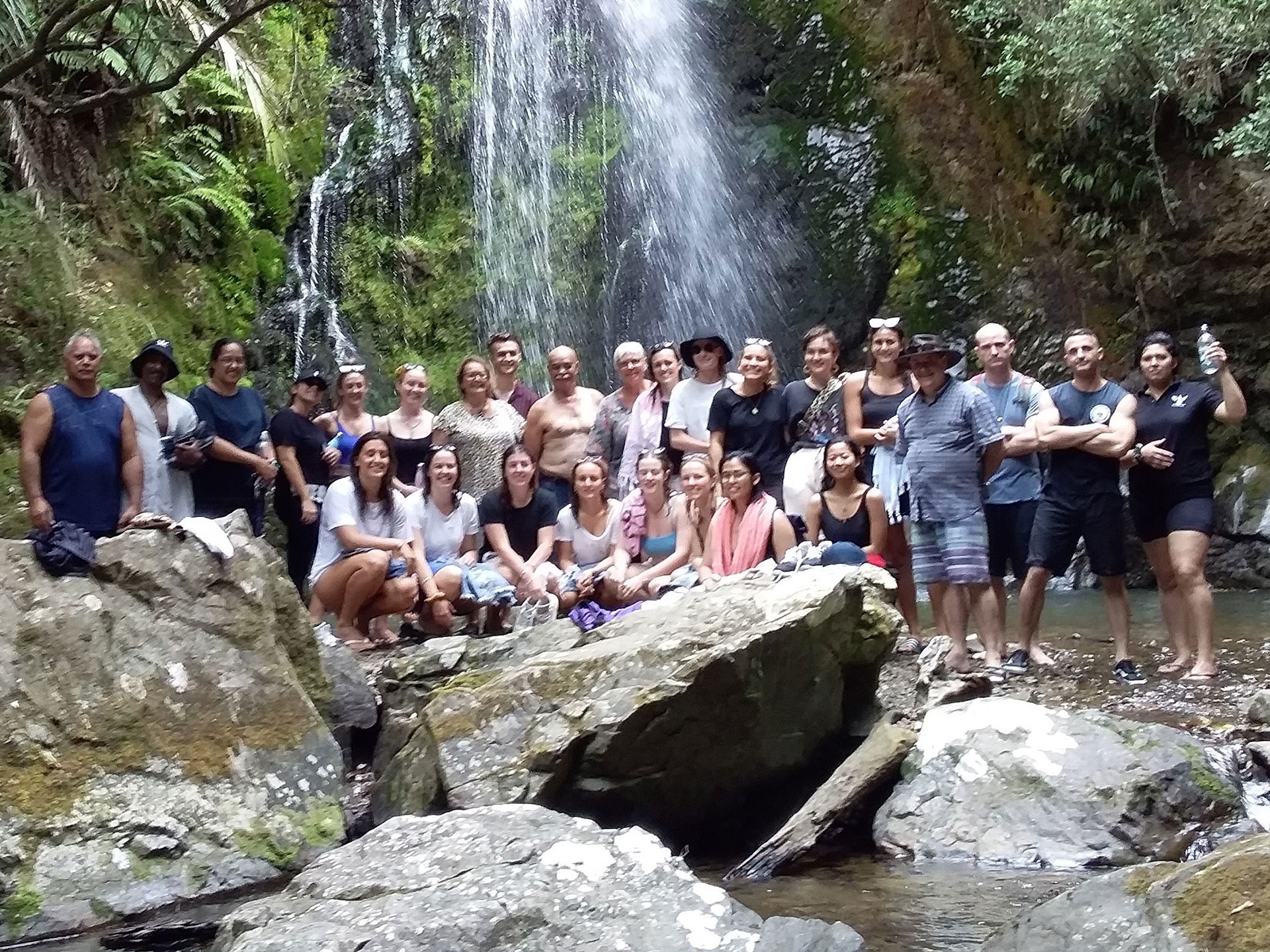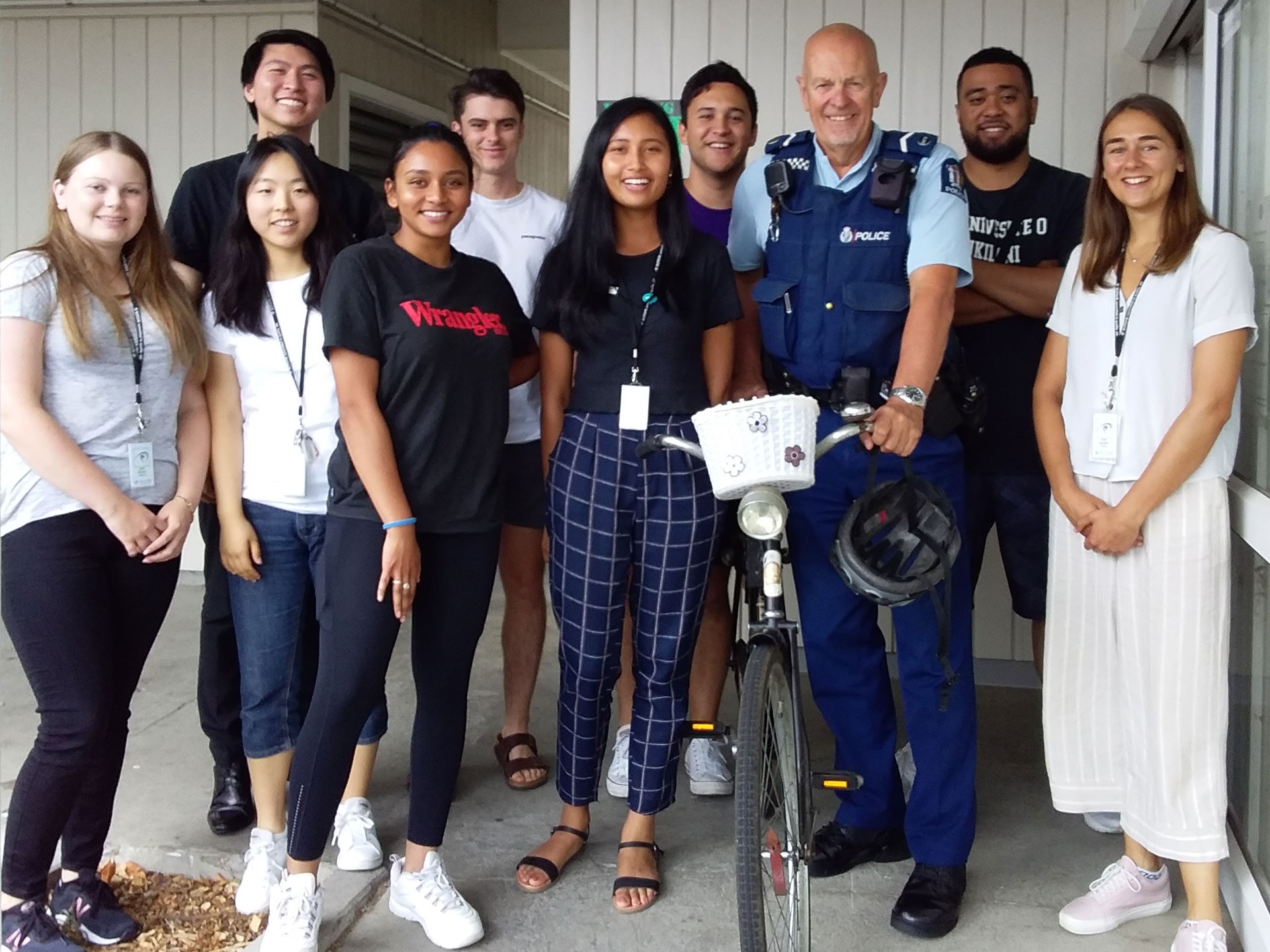News and notices Pānui
Delivering an interprofessional approach when needed most
14 December 2020
The challenges of 2020 have demonstrated more than ever the need for an interprofessional approach to healthcare and that’s exactly what the Eastern Bay’s Rural Health Interprofessional Programme (RHIP) delivers.

RHIP Academic Co-ordinator, Yvonne Boyes, said she had been wowed by the energy, positivity and dedication of the 50 students who participated in the Bay of Plenty District Health Board (BOPDHB) programme this year.
“The students are wonderful ambassadors of their professions and institutions, who will make an outstanding contribution to the health workforce in the years to come,” said Yvonne.
The RHIP commenced in 2012 and aims to improve the recruitment and retention of health professionals in rural areas by providing students with an opportunity to live, study and work together in Whakatāne. This year, for the first time, oral health therapy was added to the 12 existing health disciplines; medicine, nursing, pharmacy, nutrition and dietetics, social work, physiotherapy, occupational therapy, podiatry, midwifery, speech language therapy, paramedicine, and optometry.
BOPDHB Dental Therapist Leeann Waaka said with oral health equity at the forefront, the opportunity to have tauira (students) included in the RHIP programme was essential.
“Alongside their fellow hauora tauira (health students), the learnings throughout the five-week block is incomparable to what they have been exposed to within the tertiary institution setting,” explained Leeann.
Immersion in the local community while living and working together means that students learn from other professional peers, leading to improved working relationships and a better understanding of how to work together and contribute to patient care.
 Immersion in the local community while living and working together is a big part of the RHIP program.
Immersion in the local community while living and working together is a big part of the RHIP program.Jesse Te Riini, from Kawerau, is studying a Bachelor of Medicine and Bachelor of Surgery at the University of Auckland. He leapt at the opportunity to choose RHIP and return to the Bay.
“One of the key highlights from my RHIP experience was living with students from a variety of other degrees,” said Jesse. “The best part was seeing people’s perspective of rural living change over the course of the programme; and learning about the history of the local iwi and about Maori health in the area and how we, as future health professionals, can help.”
Students have returned to the area once graduated for employment directly resulting from their experience on RHIP boosting the rural health workforce.
Registered Nurse Shannon Taylor completed the programme in 2017 and said it helped her develop invaluable relationships with the other students, and they keep in contact to this day.
“Whakatāne Hospital is a culturally sensitive hospital and I feel I am able to provide an optimum health outcome for the tangata whaiora and whānau,” said Shannon, who works as a nurse at Whakatāne Hospital. “After moving to Waikato to complete my postgraduate studies, I was desperate to move home to our local DHB as in the RHIP programme we spent a lot of time with Te Pare ō Toi and I learnt about the different services they provide.”
